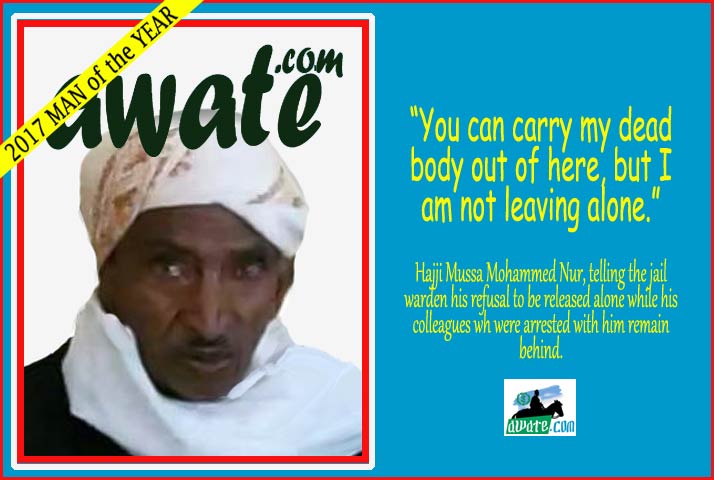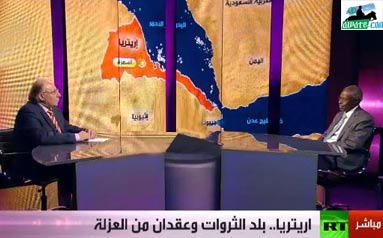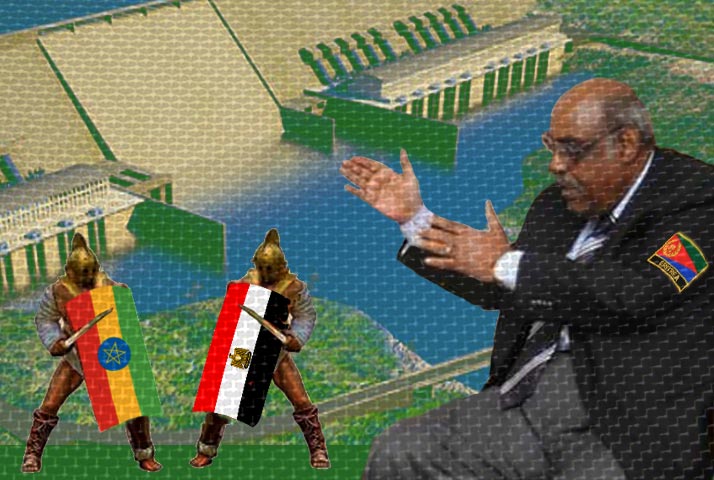Good Luck To The Seminar, Godspeed To The Attendees

A diverse group of Eritreans are getting together to discuss issues that Eritreans talk about every day: how to bring about the end of the PFDJ tyranny promptly and what to replace it with—i.e, how should we govern ourselves. This has gotten some Eritreans—the excitable among us, the malicious among us, the gossip-mongers among us, and, surprisingly, a couple of the relatively-well-educated, well-experienced among us—to focus on one issue: the venue. The meeting is being held in Addis Abeba and, thus, by definition, it must be the cause of a great deal of consternation, nail-biting, breath-holding and flag-waving by the usual quarters. But what exactly is happening?
Let’s briefly look at the Eritrean body politic.
There are some Eritreans who have thrown their lot with the ruling regime—the PFDJ. Whether they have done that out of conviction or out of interest is irrelevant to our subject today: the point is that they have witnessed first hand the outcome and side effects of PFDJ rule for the last 20 years—a country governed without a constitution, an unelected government accountable to nobody; a government which jumps from one war to another; a government that has turned Eritrea into an “open air prison”, a government that is exiling its youth by the tens of thousands, a government of a few, corrupt, Mafiosi who arrest, tortures, kill whoever stands in their way, a government that is on the verge of making at least one Eritrean ethnic group—the Kunama—extinct. Those who still support the PFDJ call of these horrendous acts as “sacrifices” that the country must pay so that it can “develop.”
Then there are the rest of us. We agree on two things: we believe that so-called development, to the extent it exists, is not worth such massive violations of Eritreans human rights and the status quo must yield and we must make a new arrangement to govern ourselves. How should we bring about the change in Eritrea? Who are our allies? Who are our opponents? What are the values we want to be guided by? What will a post-PFDJ Eritrea look like? What is the role of our neighboring countries, particularly Ethiopia, as we wage the struggle against the PFDJ and following the collapse of the PFDJ?
On these matters, there is no consensus. The Eritrean opposition has been a mishmash of the eager-beavers and the paranoid—ambiguous about everything. Those who are supposed to lead on this issue—the ones with the most political experience, the ones that should be considered our clear-headed ones—have been a bundle of emotions, quoting us hymns and feeding us prejudice. And since the Ethiopian government was, since 1999, after it broke off its soul-mate relationship with the PFDJ, been an ally of the Eritrean opposition, it bears at least a 50% share of the ambiguity and lack of clarity in this 50-50 relationship.
That was then, and this is now. One thing that practically everybody agrees on is this: whatever plan we are going to work on, it has to be developed jointly by a wide and DIVERSE group of Eritreans. The WIDE and DIVERSE and REPRESENTATIVE group of Eritreans must be able to discuss EVERYTHING openly, then, via consensus, arrive at a decision and then PROMPTLY announce its decision/recommendation to the Eritrean people.
September 5 Conference In Addis
Awate.com STRONGLY supports the September 5 conference in Addis Abeba for the same reason we support the national conference: because it fulfills all the pre-requisites of a national meeting. The current conference includes a wide, diverse and representative group of Eritreans invited by the Ethiopians for a discussion about everything that Eritreans talk about. “Wide, diverse and representative” is a relative phrase: we mean in comparison to every other meeting that the Eritrean opposition, the Eritrean civil society, and the PFDJ “mekhete” types have had in the past 20 years.
There has been a drumbeat of negative publicity from the usual quarters (not surprising) and one unusual quarter (surprising.) A lot of those who are opposed to or suspicious of the meeting tend to ascribe superhuman powers to the Ethiopian government and have very, very low opinion of their own compatriots. They think that the Eritreans will be no match for the Ethiopians: that they will be outsmarted, that they will give away the store, etc. And, yet, these nail-biters consider themselves ultra-patriots for holding a very dismissive and negative view of their own compatriots!
Why?
Part of this has to do with vanguardism: a disease that affects many former cadres of the liberation movements. They were taught, in their formative years, that the masses are stupid and they require “guidance” from those who have taken political orientation classes, translations of Marx, Lenin and Mao. The idea that the masses—ordinary people coming from refugee camps, no less—would be able to sit down and plot a strategy going forward is simply unthinkable to them. These cadres are not upset that they were not invited to the meeting; no, no, they are upset that they did not get to decide who gets invited to the meeting.
After all, when it is not Ethiopia doing the inviting, when it is some European NGO providing the funding, that is exactly what they get to do: they draw up a list of individuals who pass their test and anybody who doesn’t pass their little test is never invited. Then, the resolutions of their little group which have zero political diversity, are presented as the “will of the people.”
Part of the opposition to the seminar/conference has to do with mindless prejudice. There are some Eritreans who believe that no Ethiopian government should ever be trusted. Ever. They don’t even try to be sophisticated in their rationalization: they say the “Amharu” want our port; and that the “Tegaru”—well who knows the heart of a Tigraway, but whatever it is can’t be good. For good measure, they will throw in what one warlord did to another warlord a century ago, and what songs were written about that feud—except that these two warlords have now, thanks to enlightened political engineering, acquired Ethiopian and Eritrean nationalism when this meant nothing in their time.
This is considered political analysis? And you consider yourself a vanguard, a patriotic Eritrean for pitching this infantile history? We can do better. Eritrea and Ethiopia are going to be eternal neighbors; our objective is to have overlapping interests: we can choose to be like Greece and Turkey or we can choose to be like US and Canada. This should be the choice of the people—not that of an unrepresentative group of bigots and ultra-nationalists.
This is not to say we are thrilled with the way the event was organized. The way the news was spread, the way the invitation was handled, the way everything was communicated begs a lot of reflection. Maybe the Ethiopians are weary knowing the anti-Ethiopian vitriol, and they could have decided to stay away from direct contact with the invitees. That could be absolved, but the management of the process could not be excused. A travel agent with a list of names (with a fraction of the budget) could have handled it professionally. But to give the task to people who do not even respond to their e-mails is inexcusable. That should be beyond us now; the upcoming congress should be handled differently. If it is not, the mishandling of getting 4o-something people would pale when compared to getting hundreds more. In his latest article in Arabic, Ustaz Mahmoud Lobinet has captured the invitation malfunction properly, though he took his artistic license and presented it in a sarcastic way.
Those who are spreading rumors and conspiracy theories about the seminar are the same people who called last year’s national conference, a phenomenal success by the measures of Eritrean conferences, a “failure.” There is no cure to those who choose to live in a parallel universe. There is nothing patriotic about denigrating your own compatriots: how long will you go on pretending that you are the only one who has Eritrea’s interest at heart? If you are panic stricken by these developments, steady: this is only the beginning.
As to those who are worried about equal representation, rest assured. That is our main concern as well, and we can tell you that there is a fair representation of all forces (excluding the fact that neous zoba adengliz, the sane part of it, has a major presence). There are Eritreans attending the conference whose names, once published, will give some reassurances to the fence-sitters.
Since this is an invitation, it was formally declared an invitation in a dinner party held on Monday night and the seminar opened on Tuesday. And since this is an invitation, the invited will listen to what the inviter says and take it from there—as it should be. Most of the attendants are our close friends and allies and they are more than capable of representing our cause and they are not the type who would need to be told how to handle diplomacy and dialogue—they are more than qualified, at least more than qualified compared to those who are doing the sophomoric analysis.
Good luck to the seminar and Godspeed to the attendees.




Awate Forum